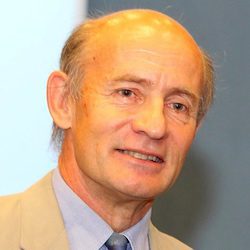Close to 100 international meetings, negotiations, and discussions are held every working day in Geneva, attended by diplomats, experts and representatives of civil society, and business people who must report back to their governments, organisations, or companies. The volume of person-hours and reporting is enormous. This workshop aims to increase the quality and efficiency of such reporting and help communities and individuals worldwide to follow Geneva-based meetings and negotiations.
About the workshop
The workshop will focus on the critical skills required for both traditional and Internet-based reporting to ensure effective, user-friendly communication on what can be complex and technical topics. It will include guidance and exercises in the art of conscious listening, on the use of language, on the structure and style of written reports, on preparing concise summaries, and offer an introduction to new media. The workshop will be supplemented by three one-hour webinars to be programmed within two months offering guidance on the use of new media for reporting, specifically Twitter and blogging and addressing the use of online data-mining tools. Two or three optional online clinics will provide follow-up over the next six months where participants may submit reports of meetings/events they have prepared for individual feedback and guidance.
Who should attend
The training programme is a pilot project designed for diplomats, post-graduate students, international officials, and NGO representatives.
Training objectives
After completing the training, participants should be able to:
- Understand the requirements for clear and informative reporting
- Practice the skill of conscious listening
- Identify core issues, present the context and distinguish between fact and opinion
- Demystify complex topics for non-expert readers and/or policymakers
- Plan and structure a range of traditional written diplomatic reports
- Assess the opportunities provided by the Internet, including the use of new media, for public reporting
- Master the art of blogging/Twiplo-reporting
Working methods and procedures
The trainer will use lectures, screening of audio-visual material (video-clips, webcasts, Twitter feeds), and written hand-outs focusing heavily on interactive participation through listening and writing exercises. A virtual classroom will be set up for uploading relevant background material, exercises, follow-up assignments, exchange of views, questions, etc. Participants are required to bring their own laptops.
Trainers
Workshop
Mrs Liz Galvez is a course lecturer with Diplo teaching Public Diplomacy, Negotiation Skills and Diplomatic English. A former senior diplomat with the British Foreign and Commonwealth Office, she served in a wide range of diplomatic jobs in London and abroad, including 12 years in multilateral diplomacy: UN Geneva, OSCE Vienna, and UN New York. She was the first Executive Director of Aspen Institute Romania from 2006 to 2009. She holds an MSc in Nationalism and Ethnic Conflict from the University of London (2011).
Online clinics/webinars
Ms Mary Murphy joined the Diplo Team in July 2010. Based in Budapest, Hungary from where she oversees Diplo’s operations and external communications, Mary has had a varied career in operations and administration in Ireland, the UK, Hungary, and the USA. She holds an MA in International Publishing from Oxford Brookes, UK, and a Master in Contemporary Diplomacy from the University of Malta.
Mr Pete Cranston is a knowledge management, communication and social media specialist, with long experience as a facilitator and trainer. He has worked mainly in international development, for a wide range of government, international NGO, research and UK civil society organisations. His most recent research has been into global social media trends, with special reference to health communications, and the impact of convergent mobile technologies in rural development. Pete has been working regularly with Diplo since 2007 on communications and online collaboration projects. He teaches eDiplomacy and social media skills for diplomats at Diplo workshops and online courses.
Dr Jovan Kurbalija is the founding director of DiploFoundation and visiting professor at the College of Europe (Bruges). A former diplomat with a professional and academic background in international law, diplomacy, and information technology, Dr Kurbalija’s main areas of research are the impact of the Internet on diplomacy, the development of the Internet governance regime, diplomatic law (the impact of the Internet on privileges and immunities), online negotiations, and e-participation. He is the author of An Introduction to Internet Governance, which has been translated into nine languages and will soon publish in its 6th edition.
Venue: DiploFoundation offices in the World Meteorological Organization building, 7 bis Avenue de la Paix, Geneva.
Certification: On successful completion of the workshop, participants will receive a certificate in Diplomatic and Internet Reporting from DiploFoundation.
Fee: The workshop fee is €500. The Geneva Internet Platform will provide scholarships for participants from small and developing countries, and prospective Geneva Internet Rapporteurs (specialized in following Internet policy events).
Applications: Using the form at .
Contact: For further information, contact M Marco Lotti at marcol@diplomacy.edu






![[Webinar] Does diplomatic law really protect? 1 Flag, Cricket, Cricket Bat, Sport](https://diplo-media.s3.eu-central-1.amazonaws.com/2013/05/UN-flags.jpg)